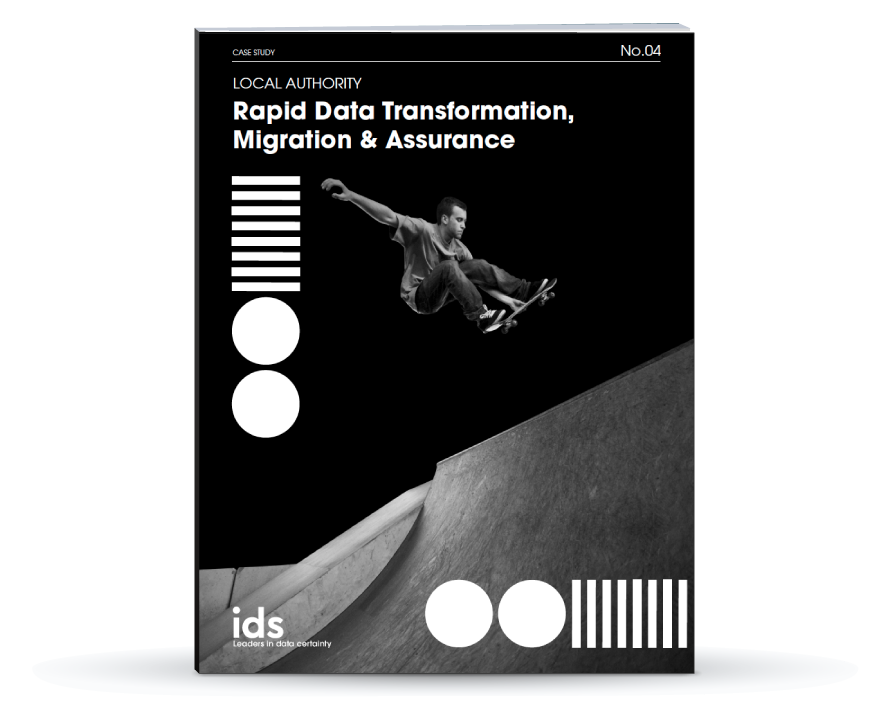5 Most Common Local Council Data Quality Challenges
.jpg)
Local government data needs to have a set of data standards and governance.
Why? Because they take difficult decisions that affect diverse communities consisting of differing political opinions that exist within their cities, towns and villages. To make the best, objective decisions, free of argument, they need high quality data for execution.
Councils must be able to collect, analyze, and use data in an ethical way so they can make the right decision for their community.
Data quality is a key aspect of modern enterprise operation in the government and public sector. As more and more data is created, data quality challenges become harder to deal with. It’s important for councils to know the risks from data entry errors - and what steps they can take to mitigate them.
There are many struggles affecting local authority data when it comes to data quality.
Here are the top five most common data quality challenges your council may be facing that requires the need to regain control of your data.
1. Overseeing Data Standards
Local councils are responsible for the management of public infrastructure and services. But they are also in charge of reliably and securely collecting information on citizens’ needs that they can use to create better policies.
Citizens' individual service experiences rely on accessible and accurate local authority data storing their up-to-date details and records.
Data standards, as part of a data governance program, are also needed to ensure that data is of high quality and meets the agreed-upon standards. That there are no duplicates, blank or null values, or invalid entries.
Otherwise, such a series of data quality challenges could risk adverse publicity to the council.
2. Data Collection & Storage
The silos in local councils’ - and in their tech stack - mean that data collection accuracy hinders interoperability and overall data certainty.
This issue is compounded when there are multiple levels and departments in government organizations, each with its own set of systems. This can lead to errors or inconsistencies when combining different types of local government data together, that can affect decision-making processes.
Therefore, they’re unable to collect accurate local council data because they can't communicate with other departments, that means that they don't have a complete picture of what's going on in the community. This leads to a lack of transparency and accountability both internally within the council and externally among its community.
To optimize their effectiveness, local governments need a reliable way to collect and manage their data that will also help them address these problems.
.jpg?width=1200&name=IDS_Website-Image59_(1200x628).jpg)
3. Data Entry Errors
Furthermore, the use of disparate systems and susceptibility to data entry errors cause issues with the quality of data collection, as well as gaps in coverage where no information has been collected at all.
The lack of time in the fast-paced government sector also means there’s a lack of quality assurance after data collection. This can lead to persistent data quality challenges. For example, a person may not have the necessary expertise to analyze and make decisions on the accuracy of information being entered.
These errors can be costly in time and money, but also in terms of customer satisfaction, because of the potential for serious consequences on the population. Local authorities often deal with this problem by investing in a data quality solution, like iData, that will ensure the data’s accuracy and quality before ever affecting local council data decisions.
To avoid data entry errors causing later challenges, it’s important to have a system in place with a team who will be checking this every step of the way.
Data governance is a recommended data quality management practice that involves dedicated teams with responsibility for overseeing data standards for consistent data quality. This involves developing a culture embracing data and constantly using it to its full potential.
4. Private Data Being Protected from Hackers
Local governments have a responsibility to protect the data of their citizens from misuse. But it will be impossible for them to do so while they don't democratize access to this data.
In 2019, local authorities faced 263,000,000 attempted cyber-attacks. This is because they have access to a lot of sensitive information about people in their communities. They also have a lot of valuable data about the government and public institutions that hackers can exploit for financial gain.
It’s critical for local councils to protect their data from breaches and attacks by governing it with strong cybersecurity policies and data quality and compliance practices.
5. Data Quality Checks
Data quality checks are one way to ensure local council data is accurate and up to date.
Data quality checks are essential because they help in dealing with effects of data entry errors that could cause many problems later on. Data entry errors can cost local councils billions of dollars and lead to potential data breaches and, with this, incurred fines.
These checks provide insight into the validity of local authority data to help plan how to deal with any data quality challenges.
IDS has the resources, expertise, and experience to help you with in-depth data quality checks and is committed to helping clients measure and improve their local government data quality.
Using our data assurance and comparison methodology, Kovenant™, data can be compared against these five challenges and ensure it is accurate, safe, and ready for any audit.
Contact us today for a free consultation to see how we can offer value for your business.

Performing Rapid Data Transformation for a Local Authority
Completing with a 48% reduction in time to migrate from SAP with QA at the heart of the approach



